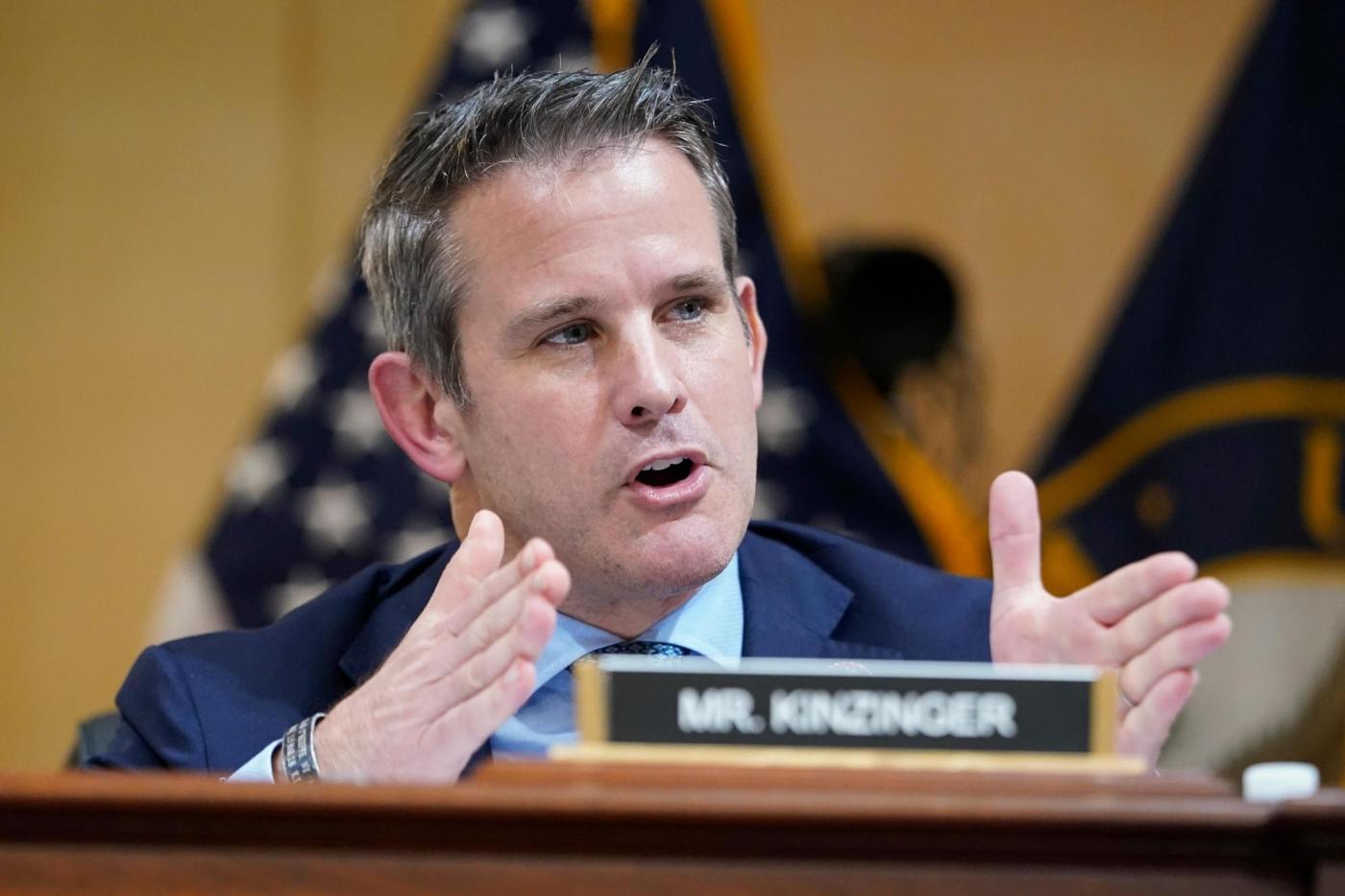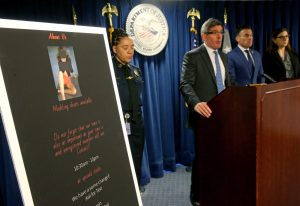
Andrew Eastmond: Where are the responsible people when our politics needs them the most?
In recent weeks voters watched House Republican conference members shout down a press question about House Speaker Mike Johnson’s efforts to overturn the results of the 2020 presidential election. They saw protesters calling for a cease-fire in Gaza repeatedly interrupt Secretary of State Antony Blinken’s testimony during a Senate hearing. They might be forgiven for asking the question, where are the responsible people when our politics needs them the most?
This question was a theme of German pastor Dietrich Bonhoeffer’s writings during his opposition to Adolf Hitler’s Nazi Party and is a focus of former U.S. Rep. Adam Kinzinger’s new book about his time as a public servant. According to Bonhoeffer, true responsibility is a manifestation of selflessness, which arises from being a “deputy” who acts on behalf of others. It involves “what is necessary at the given place and with a due consideration of reality.” Responsible people are people who stand for truth and serve others even when it is not in their immediate best interests or may be contrary to prevailing popular opinion.
This sense of duty caused Bonhoeffer to participate in a failed plot to kill Hitler, costing him his life. It impelled Kinzinger to participate in the House Select Committee to Investigate the January 6th attack on the United States Capitol despite his being a Republican. As Kinzinger stated during the proceedings, “I remember making a commitment, out loud a few times and in my heart repeatedly even to today, that if we are going to ask Americans to be willing to die in service to our country, we as leaders must at least be willing to sacrifice our political careers when integrity and our oath requires it. After all, losing a job is nothing compared to losing your life.”
Like Bonhoeffer’s emphasis on building Christian community, responsible political leaders are unifying consensus builders who foster civic compassion and form the broadest possible coalition, a “reasonable majority,” to address pressing problems. As author Alexandra Hudson has noted, these leaders also need a disposition of civility, which is “an outgrowth of seeing people as they really are: as beings with irreducible moral worth and deserving of respect. This is worthy for its own sake, even if it means we don’t gain the upper hand in every (political) dealing.”
While our country’s list of policy challenges is long, responsible leaders must engage the reasonable majority in addressing four main issues that are critical to our life together over the upcoming year.
Safeguarding democracy and the rule of law is paramount.
We need to elect leaders who commit to working within our long-standing constitutional system, while reinforcing respect and understanding of it, rather than focus on destroying the system to seek retribution for perceived grievances.
Responsible leaders also realize that the United States has an indispensable role in protecting other democracies abroad and in safeguarding basic human rights throughout the world.
Whether supporting the Ukrainian people and government’s struggle to protect their homeland from Vladimir Putin’s aggression or ensuring that the laws of war are respected to protect the citizens of Gaza when Israel rightfully destroys Hamas for its recent barbaric terrorist attacks, the world looks to the positive example set by the United States.
As part of protecting human rights and enhancing our future workforce, we need to improve pathways for legal immigration and fix our broken asylum system (e.g., hire more immigration judges to dramatically improve case processing times), while properly targeting our foreign aid programs to address the root causes of our immigration challenges — violence, lack of economic opportunity and extreme poverty.
For migrants continuing to arrive in cities like Chicago, we need to support efforts to quickly approve work permits so that they can fill jobs in areas like hospitality where there are unfilled opportunities. Government should work with other areas of civil society, including religious institutions, to efficiently provide for basic needs such as coats, food and shelter while, importantly, reminding citizens of their duty to love these migrants as they would themselves.
Finally, responsible leaders need to heed the reasonable majority’s demand for nationwide, sensible solutions to gun violence.
According to an April 2023 Fox News poll, 87% of voters surveyed said they support requiring criminal background checks on all gun buyers. Strong majorities support raising the legal age to buy guns to 21 (81%) and requiring mental health checks on gun buyers (80%). Eighty percent of voters say police should be allowed to remove guns from people considered a danger to themselves or others.
How can concerned citizens ensure that our country rewards responsible leaders and puts in place structures allowing these leaders to win elections (e.g., ranked choice voting and nonpartisan primaries)? You can join groups such as Kinzinger’s Country First and Heath Mayo’s Principles First, which are open to Democrats, Independents and Republicans committed to putting country over party and building on our long-standing shared civic ideals.
As Kinzinger explains, the answer to angry partisans isn’t more anger, “but an upwelling of goodness. We must form small groups that affiliate with other small groups until they become part of a national movement that will not be ignored. This cannot be done in anger, and it cannot include a rejection of those with other views.”
Andrew Eastmond is a member of the American Enterprise Institute Leadership Network and a Riverwoods, Illinois, village trustee. He wrote this column for the Chicago Tribune.

